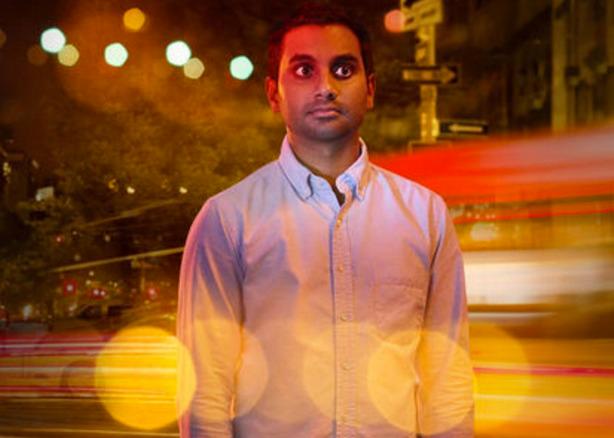First published on Daily Life, November 2015.
There’s an episode of ‘Master of None’, the brilliant new show co-created, written and starring comedian Aziz Ansari, which proves that if you’re asked to betray yourself for a career break, then perhaps that career isn’t worthwhile.
It sees aspiring actor Dev Shah (Ansari) audition for a Friends-style sitcom role, only to be faced with every Indian person’s personal Titanic – a white casting agent that cheerfully asking him to, you know, “do an accent”.
Flash to real life: in a recent op-ed written for The New York Times, Ansari reminds us that it’s taken an eternity to recognise that first-generation immigrants might be complex, funny beings. “I wouldn’t be in the position to do any of this, […] unless some straight white guy, in this case Mike Schur, had given us jobs on “Parks and Recreation.” he writes in the article. “Without that opportunity, we wouldn’t have developed the experience necessary to tell our stories.”
Back in the 90s, ‘All-American Girl’, an ABC sitcom starring Margaret Cho as a rebellious Korean-American teenager was an antidote to the likes of ‘Full House’, but – courtesy of network pressures – it devolved into a schlocky mess of stereotypes. (cue the Chinese grandmother with a pet cricket)
Closer to home, author Benjamin Law’s much-anticipated SBS series ‘The Family Law‘ is a hilarious but heartfelt take on what it’s like to grow up in a Chinese-Australian family in the (very white) Queensland suburbs. It’s also a powerful example of the fact that some stories are richer, and more authentically told when the kids of immigrants take their rightful places as showrunners and creators.
Unsurprisingly, ‘Master of None’ has been universally praised since it dropped on Netflix a fortnight ago, not least because of the clever ways it wrings laughs out of the the internal gymnastics people of colour deal with everyday.
There are no earnest lessons on ‘the merits of diversity’. Instead, it simply depicts a world in which the son of Indian migrants (Dev) craves gnocchi rather than curry, a Taiwanese-American guy named Brian (Kelvin Yu) inspires a lustiness typically reserved for Ryan Gosling and Denise (Lena Waithe), a queer black woman, delivers one-liners with the zing of someone whose baseline wit is undiminished by the chore of negotiating one’s identity.
“If I do a show with two Indian guys on the poster, everyone’s gonna think it’s an Indian show. It wouldn’t be as relatable to a large mainstream audience,” says a network executive in one episode. But look closer, the show seems to retort, and you’ll find people of colour are just as compelling a study in human weirdness. Whether or not network executives are starting to see it, audiences can definitely relate.
The way ‘Master of None’ portrays outsiders as flawed insiders may be revolutionary. But I also can’t deny that at times the show simply makes me want to physically hug the screen. The easy diversity of its friendship group, as well as the way its characters swing between debates about race and mindless banter about the subtext of emojis and David Scwhimmer’s career, could have been lifted from my actual life.
And like Dev, I’ve never asked my parents about their own foundation myths or what it felt like to put roots in Australian suburbia without a clue how your life will turn out. When Dev and Brian take their parents to dinner to learn more about the journeys that brought them to America, Dev finds out that his father worked in a zipper factory to fund medical school, faced racist barbs from his American colleagues and longed to play guitar as a child. Dev buys him a guitar only to find out that it can’t compete with the thrall of an iPad.
In a November 2015 article in Buzzfeed, Bim Adewunmi explores the ways in which the show gets the nuances of race. “In Master of None, race is not a Very Special Episode issue. It’s a fact of life, just one of the many variables that determine our experiences,” she writes. ‘Master of None’ owes its strengths to the way it writes people of colour who are curious, complicated and frivolous all at once. But it’s masterful because it honours the journeys we take as migrants but believes we’re shaped by the journeys we take as human beings.
